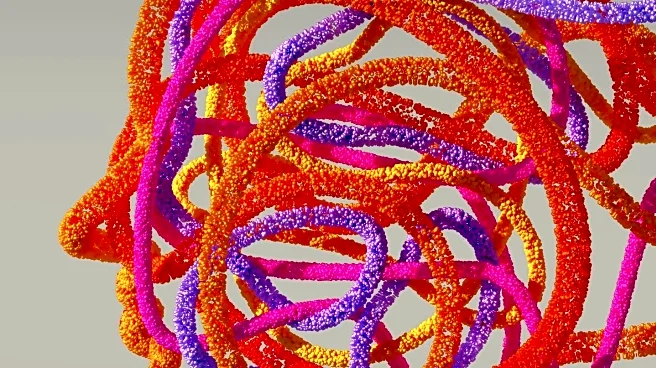What's Happening?
Researchers at the Centre for Genomic Regulation in Barcelona have discovered that a single drug, already licensed for medical use, can stabilize nearly all mutated versions of a human protein, specifically a G-protein-coupled receptor (GPCR). This breakthrough offers a potential new treatment avenue for rare diseases caused by mutations in DNA. The study demonstrated that the drug, tolvaptan, restored receptor levels to near normal for a significant percentage of destabilized mutations. GPCRs are critical for various bodily functions, and mutations can lead to conditions like nephrogenic diabetes insipidus, affecting kidney function.
Why It's Important?
This discovery is significant for the treatment of rare genetic diseases, which pose a global health challenge due to their diverse mutations and low individual prevalence. The ability of a single drug to stabilize multiple mutations could revolutionize drug development for rare diseases, making it faster and more commercially viable. This approach could shift the focus from targeting individual mutations to stabilizing entire proteins, potentially accelerating the development of effective therapies for genetic conditions. The findings could also influence the pharmaceutical industry by encouraging the exploration of universal pharmacological chaperones.
What's Next?
Future studies are needed to confirm whether the rescued receptors function normally, which would validate this approach for drug development. Researchers may explore the application of this principle to other proteins and diseases, potentially leading to new treatments for various rare conditions. The pharmaceutical industry might invest in developing general pharmacological chaperones, which could streamline the drug development pipeline for genetic diseases. Clinical trials could be designed to rapidly identify drug-binding sites in proteins, enhancing the efficiency of therapeutic development.










